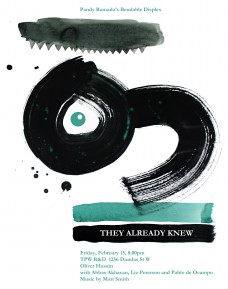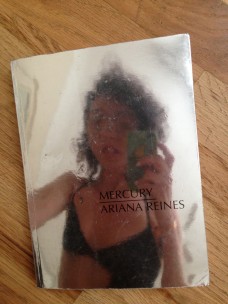
Ariana Reines
CANADIAN ECSTASY
Presented by Gallery TPW
In Partnership with
cheyanne turions and
No Reading After the Internet
June 23 – 26, 2014
Gallery TPW is thrilled to host a week of events with poet, playwright, translator, and artist Ariana Reines. In the context of the TPW R&D project, we invite audiences to engage the charismatic and bold practice of this interdisciplinary thinker. Through a week of performance, reading, writing and talking together we’ll consider practice, methodology and what it might mean to be in relation.
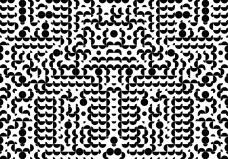
HYPNOTIC SHOW
A project by Raimundas Malašauskas and Marcos Lutyens, with Tamara Henderson, Angie Keefer and Maryse Larivière
June 12 – 13, 2014
Group Hypnosis Sessions
June 12, 2014
Session 1: 7:00 -8:00 pm,
Session 2: 10:00 – 11:00 pm
June 17, 2014, 7:00 pm
Tamara Henderson lecture followed by a group, post-hypnotic debrief.
Group Hypnosis Sessions
June 12, 2014
Session 1: 7:00 -8:00 pm,
Session 2: 10:00 – 11:00 pm
June 17, 2014, 7:00 pm
Tamara Henderson lecture followed by a group, post-hypnotic debrief.
Session 2: 10:00 – 11:00 pm
Tamara Henderson lecture followed by a group, post-hypnotic debrief.
Gallery TPW is excited to partner with Kunstverein Toronto to present their first project, Hypnotic Show, an exhibition that develops in the mind.
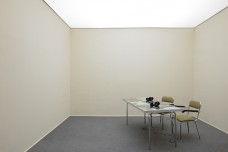
The noise of reception
Essay
Montreal-based writer and curator Vincent Bonin responds to Tris Vonna-Michell’s exhibition, Capitol Complex, at Gallery TPW.
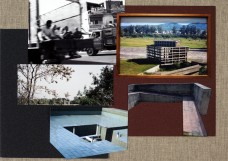
Tris Vonna-Michell
Capitol Complex
May 10 – June 7, 2014
Opening Reception:
Saturday, May 10, 2014, 3:00 – 6:00 pm
Tris Vonna-Michell stages installations and performs narrative structures using spoken word, sound compositions, and photography. His narratives are born of historical research and social observation, filtered through personal anecdotes.
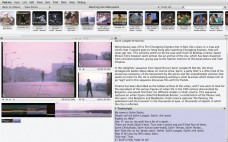
Working in and out
of the archive
A co-presentation with Images Festival
Reena Katz, Jesal Kapadia & Brian McCarthy, and Naeem Mohaiemen
In collaboration with Pad.ma
April 10–April 26, 2014
Performance Lecture and Discussion: Saturday, April 19, 2014, 2:00 pm
Working in and out of the archive presents the results of commissioned explorations of the Pad.ma online archive, with contributions by Reena Katz, Jesal Kapadia & Brian McCarthy, and Naeem Mohaiemen, in consultation and collaboration with Pad.ma representatives Shaina Anand and Ashok Sukumaran.
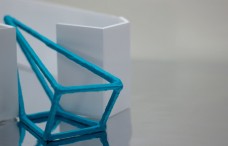
Bojana Stancic
weighing and pensive
March 8 – 29, 2014
Opening Reception: Saturday March 8, 2:00 – 5:00 pm
Bojana Stancic’s single image exhibition, weighing and pensive, is rooted in the contemplative space of an encounter with works and their sites of display.
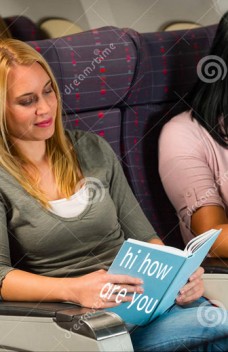
hi how are you
Writer in Residence:
Tiziana La Malia
Gallery TPW Writer in residence Tiziana La Melia’s hi how are you adapts the format of an in-flight travel magazine as a model for building a narrative out of episodic reportage. La Melia asks reader to picture her “scribbling the answers in sky-high hovering movement with images from a birds eye point of view, crackling long distance phone calls to Nadia Belerique and Bojana Stancic”
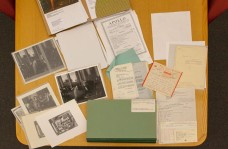
Intelligence is Knowledge with a Shelf Life:
A workshop with Charles Stankievech
Wednesday, February 19, 2014
7:00 – 10:00pm
With a shared commitment to discursive programming on current debates in contemporary art, Blackwood Gallery and Gallery TPW are pleased to partner with Justina M. Barnicke Gallery to think out loud about curatorial experimentation on the occasion of Charles Stankievech’s curatorial debut in Toronto.
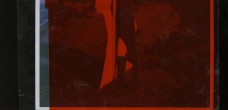
Nadia Belerique
The Counselor
February 8 – March 1, 2014
Opening Reception: Saturday, February 8, 2014, 2:00 – 5:00 pm
Commissioned by Gallery TPW to make a single image exhibition, with The Counselor, Nadia Belerique plays with the limits of photography. Can a photograph be a stand-in for what it depicts?
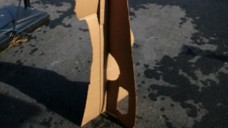
One Image.
A new commissioning series at TPW R&D.
Nadia Belerique
February 8 – March 1, 2014
Bojana Stancic
March 8 – 29, 2014
We begin our one image commissioning series with a pair of exhibitions by Toronto-based Nadia Belerique and Bojana Stancic who explore the relationship between image and object. Stay tuned for more information.
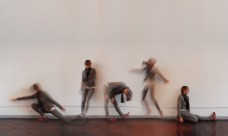
Your Timing is Perfect
and other wall works
A new performance by
Jenn Goodwin
Friday, January 10, 2014: 6:00 – 10:00 pm
January 11 -12, 2014: 2:00 – 6:00 pm
Continuing our interest in the relation between liveness and images, Gallery TPW presents Your Timing is Perfect and other wall works, a new work by Toronto choreographer Jenn Goodwin. With collaborators/performers: Valerie Calam, Luke Garwood, Kristy Kennedy, Jared MacSween, Zoja Smutny and Heidi Strauss. Roxanne Luchak (video), Laura Nanni (dramaturg) and Camilla Singh (consultant)
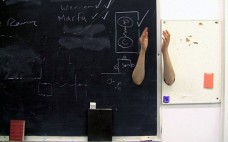
Notes on Back to School:
A Conversation About Making an Open Classroom Happen
Posted November 21, 2013Art educator and writer Amber Yared responds to Vesna Krstich’s curatorial residency, Back to School, a series of workshops, screenings, lectures, events and conversations focused on alternative pedagogy. In this post Yared sits down with choreographer Ame Henderson to speak about Henderson and Krstich’s co-facilitated workshop, “Making an Open Classroom Happen”.
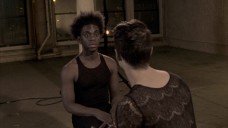
Wu Tsang: Artist Talk
Sunday, November 17, 7pm
Join us for a talk with Los Angeles-based artist Wu Tsang. Looking at recent and current projects, Tsang will focus the discussion on his performance practice of “Full Body Quotation.” The event includes a screening of the 9-minute film For How We Perceived a Life (Take 3). .

Notes on Back to School:
An Institution Is a Thing Made of People and An Institution Is a Thing Made of Space
Posted October 24, 2013Art educator and writer Amber Yared responds to Vesna Krstich’s curatorial residency, Back to School, a series of workshops, screenings, lectures, events and conversations focused on alternative pedagogy. In this post Yared reflects on the assumed rigidity of institutionalized education and pedagogic power dynamics in response to a public Skype conversation with Jakob Jakobsen.
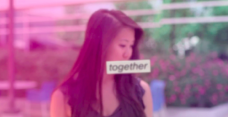
Ending an Encounter:
Some notes on the end of a residency
Blog Post
Posted October 22, 2013In this blog post Gabrielle Moser reflects on her time as Curator in Residence at Gallery TPW.
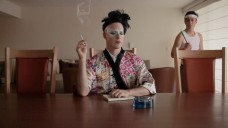
Feelings
Reading Group
Tuesday, November 5, 2013, 7:00 pm
Jon Davies, guest curator of Wu Tsang: Show’s Over, will moderate a discussion of several texts selected in dialogue with the exhibition.
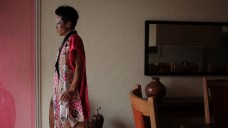
Show’s Over
Essay
Guest curator Jon Davies responds to Wu Tsang’s exhibition, Show’s Over, at Gallery TPW.
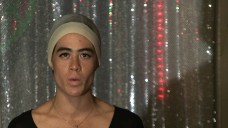
Wu Tsang
Show’s Over
Curated by Jon Davies
October 4 – November 16, 2013
Opening Reception:
Friday, October 4, 2013, 7:00 – 9:00 pm
Gallery TPW is pleased to present an exhibition by Los Angeles filmmaker, artist and performer Wu Tsang. Tsang’s work draws on legacies of vocal performance, re-enactment, trans/queer representation, and anti-oppression activism to stage the complex relationships between individual and collective subjects and the charged dynamics of the body, identity, voice and politics.

Notes on Back to School:
Zmijewski’s Choices
Posted September 25, 2013Art educator and writer Amber Yared responds to Vesna Krstich’s curatorial residency, Back to School, a series of workshops, screenings, lectures, events and conversations focused on alternative pedagogy. In this post Yared examines ideas of destruction and creation, non-verbal compliance and crappiness in Artur Zmijewski’s Choices .
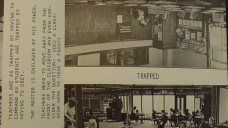
Back to School
Curatorial Statement
Essay
Guest curator Vesna Krstich introduces the research interests driving the Back to School residency.

Notes on Back to School:
A Partial Re-enactment
Posted September 19, 2013Art educator and writer Amber Yared responds to Vesna Krstich’s curatorial residency, Back to School, a series of workshops, screenings, lectures, events and conversations focused on alternative pedagogy. In this post Yared examines practices of re-enactment and reinvention.
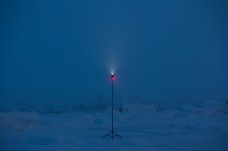
Wanting Images:
What does a landscape want?
On illumination as a hermeneutics of looking
Posted September 13, 2013Writer and scholar Sara Matthews contributes a series of blog posts to TPW R&D Online. Entitled Wanting Images, the series explores the relation between art, pedagogy and desire. Taking the form of a conversation with various images, visual projects and curatorial strategies, the intent is to explore the notion of what constitutes a pedagogical encounter in looking and to consider the methodological dilemmas raised by such provocations. In this post Matthews explores relationships between power, landscape, human subjectivity and technology while looking at Andrew Wright’s “Illuminated Landscapes.”
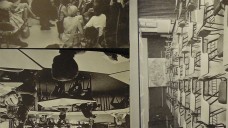
Back to School
Curatorial Residency with Vesna Krstich
September 12 – 28, 2013
Gallery TPW is pleased to present a three week residency with art historian, curator and educator Vesna Krstich. Back to School re-envisions the TPW R&D storefront as an alternative classroom space for curriculum planning and experimentation, playing host to a series of school workshops, after-school programs and public events.

Wanting Images:
on looking as free association
Posted August 15, 2013Writer and scholar Sara Matthews contributes a series of blog posts to TPW R&D Online. Entitled Wanting Images, the series explores the relation between art, pedagogy and desire. Taking the form of a conversation with various images, visual projects and curatorial strategies, the intent is to explore the notion of what constitutes a pedagogical encounter in looking and to consider the methodological dilemmas raised by such provocations. In this post Matthews experiments with free associative reading methods while looking at the work of Lieko Shiga.
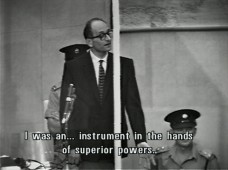
Notes on the Robert Flaherty Film Seminar
Posted July 24, 2013.Curator and writer Jon Davies reflects on the 59th Robert Flaherty Film Seminar, History is What’s Happening curated by Pablo de Ocampo.
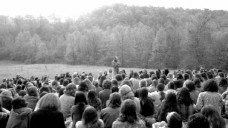
No Looking After the Internet
Discussion
Tuesday, July 30, 2013, 7:30 pm
No Looking After the Internet is a monthly “looking group” that invites participants to look at a photograph (or series of photographs) they are unfamiliar with, and “read” the image out-loud together. The July meeting of No Looking After the Internet will respond to Jason Lazarus’ current solo exhibition at Gallery TPW, examining recurring tensions between public and private viewing. Co-facilitated by artist Michèle Pearson Clarke.

Wanting Images:
In the Playroom
(on looking as pedagogy)
Posted July 17, 2013Writer and scholar Sara Matthews contributes a series of blog posts to TPW R&D Online. Entitled Wanting Images, the series explores the relation between art, pedagogy and desire. Taking the form of a conversation with various images, visual projects and curatorial strategies, the intent is to explore the notion of what constitutes a pedagogical encounter in looking and to consider the methodological dilemmas raised by such provocations. In this post Matthews questions pedagogic potentials in Jonathan Hobin’s “In the Playroom.”
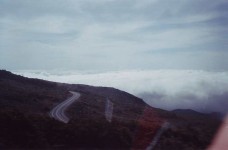
T.H.T.K. (Toronto)
Essay
Gallery TPW’s curator in residence Gabrielle Moser reflects on Jason Lazarus’ T.H.T.K. installation at Gallery TPW.
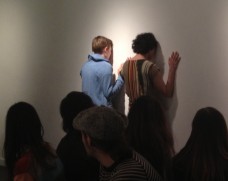
Jenn Goodwin
Reflections on a Residency
Choreographer Jenn Goodwin reflects on her ongoing research residency with Gallery TPW.

No Looking After the Internet
Discussion
Tuesday, July 23, 2013, 7:30 pm
Canadian Lesbian and
Gay Archives
(34 Isabella St.)
No Looking After the Internet is a monthly “looking group” that invites participants to look at a photograph (or series of photographs) they are unfamiliar with, and “read” the image out-loud together. In dialogue with the exhibition Gay Premises: Radical Voices in the Archives, 1973-1983 at the Canadian Lesbian and Gay Archives, and its critical counterpart of collaborative interventions, TAG TEAM, this month’s looking group will examine images included in the Photograph Wall: a key component of the exhibition. Co-facilitated by Erin Silver and Karen Stanworth
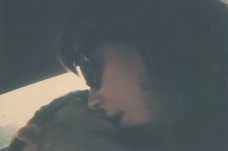
Jason Lazarus and Sara Matthews in Conversation
Public Discussion with the artist
Saturday, July 6, 2013, 2:00 pm
Join writer and scholar Sara Matthews in a public conversation with Jason Lazarus about how we find meaning in images that already exist, what we want from images and what images want from us in return

Looked-at Looking
Blog Post
Posted June 20, 2013In this response to the monthly looking group series, No Looking After the Internet, writer Noel Glover examines the role of witnessing and shame in the pedagogical space of the gallery and asks what it means to look at images while being looked at by other viewers.
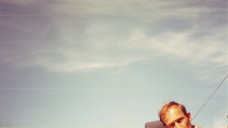
Jason Lazarus
T.H.T.K. (Toronto)
July 5 – August 10, 2013
Opening Reception:
Friday, July 5, 2013, 7:00 – 9:00 pm
Public Discussion with the artist:
Saturday, July 6, 2013, 2:00 pm
Gallery TPW is pleased to present “Too Hard to Keep,” a site-specific installation by Chicago artist Jason Lazarus, drawn from a growing archive of photographs donated by owners who find them too painful to live with any longer.

Desiring Images
Blog Post
Posted June 5, 2013In this blog post Curator in Residence Gabrielle Moser reflects on the ongoing discussion series No Looking After the Internet.

No Looking After the Internet
Discussion
Monday, June 10, 2013, 7:30 pm
No Looking After the Internet is a monthly “looking group” that invites participants to look at a photograph (or series of photographs) they are unfamiliar with, and “read” the image out-loud together. The June meeting of No Looking After the Internet will respond to Doug Ischar’s current solo exhibitions at Gallery 44 and Vtape, examining desire as a force that often exceeds the usual codes of photographic representation. Co-facilitated by artist and curator Jean-Paul Kelly.
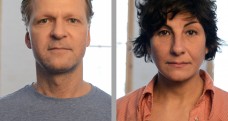
recent future
Residency with Zoja Smutny and Guntar Kravis
June 15 – 29, 2013
Open studio hours
Tuesdays – Saturdays
2:00 – 5:00 pm
Performances
Saturday, June 15 and June 22
8:30 – 10:30 pm
Choreographed Conversation
Saturday, June 29
8:30 – 9:30 pm

Wanting Images:
On looking at
“difficult photographs”
Posted June 4, 2013Writer and scholar Sara Matthews contributes a series of blog posts to TPW R&D Online. Entitled Wanting Images, the series explores the relation between art, pedagogy and desire. Taking the form of a conversation with various images, visual projects and curatorial strategies, the intent is to explore the notion of what constitutes a pedagogical encounter in looking and to consider the methodological dilemmas raised by such provocations.
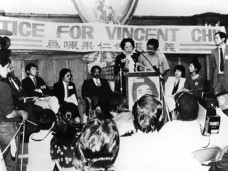
Who Killed Vincent Chin?
A Screening and Talk With Christine Choy and Richard Fung
Thursday, June 6, 2013
6:30 – 9:30pm, doors open 6:00 pm
TPW R&D is pleased to host the first session of “Model Minority” a discursive event series produced by Gendai Gallery. Model Minority takes an intersectional approach to analyze the practices that construct hierarchies, conflict and power struggles in the terrain of multiculturalism and cultural diversity in North America
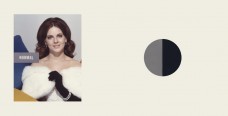
If I Can’t Dance Toronto
Reading Group
Saturday, May 25, 2013, 2:00 – 4:00 pm
If I Can’t Dance, I Don’t Want To Be Part Of Your Revolution produces art works and thematic programmes. Departing from a spirit of open questioning and long term enquiry with artists, If I Can’t Dance is dedicated to exploring the evolution and typology of performance and performativity in contemporary art. The May session of the If I Can’t Dance Toronto reading group will be hosted by TPW R&D in conjunction with Adam Broomberg & Oliver Chanarin’s exhibition, To Photograph the Details of a Dark Horse in Low Light.
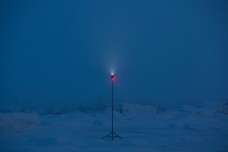
Wanting Images:
Sleeping Soldiers
Posted May 16, 2013Writer and scholar Sara Matthews contributes a series of blog posts to TPW R&D Online. Entitled Wanting Images, the series explores the relation between art, pedagogy and desire. Taking the form of a conversation with various images, visual projects and curatorial strategies, the intent is to explore the notion of what constitutes a pedagogical encounter in looking and to consider the methodological dilemmas raised by such provocations.
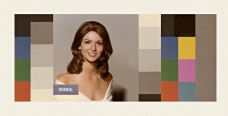
Yes, but (Some Thoughts on Broomberg and Chanarin’s New Work)
Essay
Cape Town-based writer Sean O’Toole responds to Adam Broomberg and Oliver Chanarin’s To Photograph The Details of a Dark Horse in Low Light at Gallery TPW and across Canada.
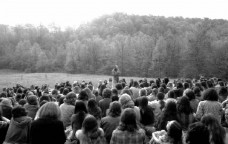
Not Knowing and No Looking
Blog Post
Posted May 15, 2013In response to the first three meetings of No Looking After the Internet, part of the “Coming to Encounter” curatorial residency at Gallery TPW R&D, writer Alison Cooley reflects on the ways that curatorial decision-making, artistic authorship and the group’s shifting social dynamics shape the practice of collective looking.

No Looking After the Internet
Discussion
Tuesday, May 14, 2013, 7:00 pm
No Looking After the Internet is a monthly “looking group” that invites participants to look at a photograph (or series of photographs) they are unfamiliar with, and “read” the image out-loud together. In dialogue with Adam Broomberg and Oliver Chanarin’s national billboard campaign and exhibition, To Photograph the Details of a Dark Horse in Low Light, the May meeting of No Looking will consider images of refusal.
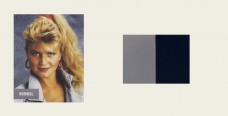
Adam Broomberg and Oliver Chanarin – To Photograph the Details of a Dark Horse in Low Light
April 29 – June 2, 2013
National Billboard campaign
May 11 – June 8, 2013
Gallery TPW
Gallery TPW and Scotiabank Contact Photography Festival are pleased to present a national billboard campaign and exhibition of Adam Broomberg and Oliver Chanarin’s work To Photograph the Details of a Dark Horse in Low Light.

Thinking About No Looking
Blog Post
Posted April 12, 2013In this blog post Curator in Residence Gabrielle Moser reflects on the ongoing discussion series No Looking After the Internet.
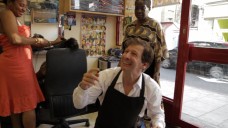
The Wanderer
Essay
Chicago-based film scholar and curator Amy Beste responds to Laure Prouvost’s multi-channel video and installation The Wanderer at Gallery TPW.
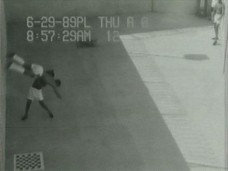
Talking About
What We Talk About When We Talk About History
Posted April 5, 2013Artist and writer Sharlene Bamboat responds to What We Talk About When We Talk About History, a screening series curated by Pablo de Ocampo. In this post Bamboat looks at the circulation of power within the film program.
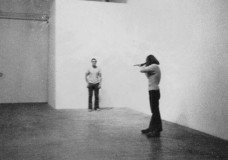
Talking About
What We Talk About When We Talk About History
Posted April 3, 2013Artist and writer Sharlene Bamboat responds to What We Talk About When We Talk About History, a screening series curated by Pablo de Ocampo. In this post Bamboat reflects on the ways in which we transmit history.

No Looking After the Internet
Discussion
Tuesday, April 23, 2013, 7:30 pm
No Looking After the Internet is a monthly “looking group” that invites participants to look at a photograph (or series of photographs) they are unfamiliar with, and “read” the image out-loud together. For the April meeting of No Looking After the Internet, artist Chris Curreri presents a collection of found photographs that elude easy interpretation.
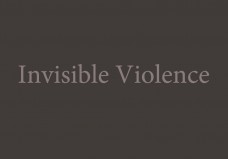
Enframing an Invisible Violence
Writer and curator Cora Fisher contributes with her thoughts on the Woodstock launch of Invisible Violence, held in conjunction with a conversation with Judy Ditner, Thomas Keenan and Liz Park.

Doing the Difficult Work
Montreal-based writer Amber Berson shares her reflections on the workshop titled “The Form of Violence / The Form of Exhibition” presented by Liz Park for Invisible Violence at CEREV (The Centre for Ethnographic Research and Exhibition in the Aftermath of Violence) at Concordia University on February 27.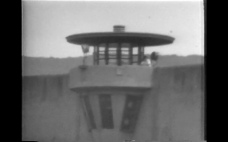
Talking About
What We Talk About When We Talk About History
Posted March 20, 2013Artist and writer Sharlene Bamboat responds to What We Talk About When We Talk About History, a screening series curated by Pablo de Ocampo. In this post Bamboat reflects the symbolic privilege of power’s gaze.

Curation as Interruption
Sara Matthews, Assistant Professor in Global Studies at Wilfrid Laurier University, responds to a conversation between Gabrielle Moser and Liz Park at the Toronto launch of Invisible Violence.
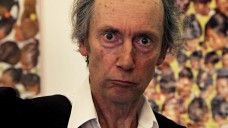
Laure Prouvost
The Wanderer
A co-presentation with Images Festival and Partners in Art
April 13 – May 4, 2013
Opening Reception:
Saturday, April 13, 2013, 2:00 – 5:00 pm
Gallery TPW and the Images Festival are pleased to co-present The Wanderer, a newly commissioned video installation by French artist Laure Prouvost.
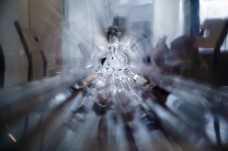
The Expanded Image
Annie MacDonell’s third year Ryerson photography class came to TPW to engage with Oliver Husain’s mutable exhibition Pandy Ramada’s Bendable Displex. The students were asked to use the exhibition as a way to investigate the possible points of intersection between photography and sculpture.

Slippery Bond
Vancouver-based artist and writer Sean Alward responds to an artist talk by Marianne Nicolson to mark the Vancouver launch of Invisible Violence.
To Nobody
Part Four
Responding to some of the concerns embedded in artist Oliver Husain’s TPW R&D exhibition, Toronto writer, director and artist Alexander Wolfson contributes a series of posts to our growing research archive TPW R&D Online. The writing is conceived as a ongoing dialogue between two nameless figures questioning the boundaries of the accessible/inaccessible in relation to representation itself. The text explores the limits of what is transmitted by an artist to whoever encounters the effects of a work. As the accompanying exhibition progresses, so will the dialogue, emerging from what occurs from within the boundaries of the space.
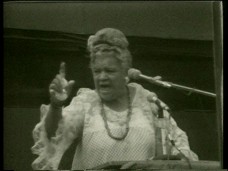
What We Talk About When We Talk About History:
A series of discursive screenings organized by Pablo de Ocampo
March 13, 20 and 27, 2013, 7pm
Flaherty Seminar curator Pablo de Ocampo has invited six curators and artists to each offer one programming suggestion in response to a single source: a video document of civil rights activist Queen Mother Moore giving a speech during a “Community Day” event at Green Haven Prison in New York, 1973. The responses will be shown over three screenings with discussions lead by de Ocampo and Kim Simon.
To Nobody
Part Three
Responding to some of the concerns embedded in artist Oliver Husain’s TPW R&D exhibition, Toronto writer, director and artist Alexander Wolfson contributes a series of posts to our growing research archive TPW R&D Online. The writing is conceived as a ongoing dialogue between two nameless figures questioning the boundaries of the accessible/inaccessible in relation to representation itself. The text explores the limits of what is transmitted by an artist to whoever encounters the effects of a work. As the accompanying exhibition progresses, so will the dialogue, emerging from what occurs from within the boundaries of the space.
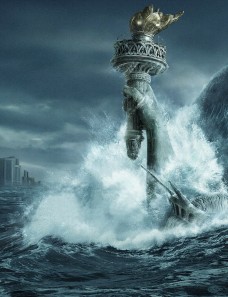
Karen Azoulay
Performance and Book Launch
Saturday, March 2, 2013, 8:00 pm
Gallery TPW and Nothing Else Press are pleased to host a performative lecture by artist Karen Azoulay.
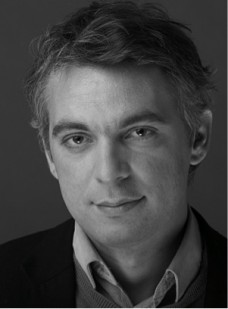
Anthony Huberman: Lecture and Workshop
March 7 & 8, 2013
Gallery TPW and The Power Plant are pleased to co-present a lecture and workshop with curator Anthony Huberman.

No Looking After the Internet
Discussion
Monday, February 25, 2013, 7:30 pm
No Looking After the Internet is a monthly “looking group” that invites participants to look at a photograph (or series of photographs) they are unfamiliar with, and “read” the image out-loud together. In dialogue with the exhibition, HUMAN RIGHTS HUMAN WRONGS, currently on view at the Ryerson Image Centre, No Looking After the Internet will examine a selection of images from the exhibition, made available to visitors as free, miniature postcards placed throughout the gallery.
Hunch Talks
Discussion
Wednesday, February 6, 2013, 7:00 pm
Hunch Talks is a new, ongoing series of discussions at TPW R&D, placing several people in conversation, following an intuition that each of their practices has something to offer to the other. We have a hunch that something, as yet unknown but dynamic and productive will emerge.
To Nobody
Part Two
Responding to some of the concerns embedded in artist Oliver Husain’s TPW R&D exhibition, Toronto writer, director and artist Alexander Wolfson contributes a series of posts to our growing research archive TPW R&D Online. The writing is conceived as a ongoing dialogue between two nameless figures questioning the boundaries of the accessible/inaccessible in relation to representation itself. The text explores the limits of what is transmitted by an artist to whoever encounters the effects of a work. As the accompanying exhibition progresses, so will the dialogue, emerging from what occurs from within the boundaries of the space.

Belmore / Gonzales-Day / Granados / Noguchi
To explore the artists’ works and the topic of violence in collaboration rather than in isolation, the curator Liz Park and photo-scholar Judy Ditner engaged in a process of exchange. Seeking to open up each other’s readings, we jointly authored this text to point to some key issues the artists take up, and to offer partial descriptions of and ruminations on the artworks.

Introduction
Invisible Violence brings together the work of four artists – Rebecca Belmore, Ken Gonzales-Day, Francisco-Fernando Granados, and Louise Noguchi – who use photography as a point of reference for histories of violence that inform a contemporary politics of representation. Designed to incite thoughtful conversations about the representation of violence and its politicization today, this multi-part project consists of: publication of the artists’ work as a sequence of 5”x7” cards; a series of discursive events conceived as points of distribution for the publication; and this web hub that archives reflections on the discussions that take place at each event.
To Nobody
A Dialogue
Responding to some of the concerns embedded in artist Oliver Husain’s TPW R&D exhibition, Toronto writer, director and artist Alexander Wolfson contributes a series of posts to our growing research archive TPW R&D Online. The writing is conceived as a ongoing dialogue between two nameless figures questioning the boundaries of the accessible/inaccessible in relation to representation itself. The text explores the limits of what is transmitted by an artist to whoever encounters the effects of a work. As the accompanying exhibition progresses, so will the dialogue, emerging from what occurs from within the boundaries of the space.

No Looking After the Internet
Discussion
Monday, January 28, 2013, 7:30 pm
No Looking After the Internet is a monthly “looking group” that invites participants to look at a photograph (or series of photographs) they are unfamiliar with, and “read” the image out-loud together. In response to Deanna Bowen’s solo exhibition, Invisible Empires, at the Art Gallery of York University (AGYU), the first meeting of No Looking will place archival images of racial violence in dialogue with Bowen’s installation.
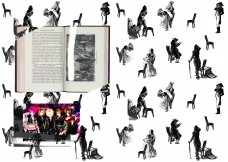
Oliver Husain
Pandy Ramada’s Bendable Displex
Exhibition
January 19 – February 23, 2013
Opening Reception: Saturday, January 19, 2013, 2:00 – 5:00 pm
For our first installation of 2013 in the TPW R&D space, artist Oliver Husain was asked to consider the collective spaces of looking. In response, Husain sets a mutable stage for coming together to look, experience and think, and to discuss images and our expectations around presenting them.
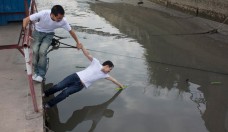
A few thoughts about
Zhou Tao’s “Collector(s)”
Reflecting on our recent co-presentation with Reel Asian Film Festival, curator Siya Chen sat down with artist Reena Katz to share a few thoughts on a some of the work in the exhibition.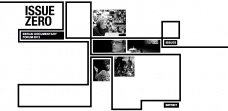
ISSUE ZERO
We had to post this link to ISSUE ZERO after reading the Hito Steyerl critique regarding posting conference lectures online. ISSUE ZERO, while quite short on content at the moment, is a sexy attempt at archiving a live discursive event.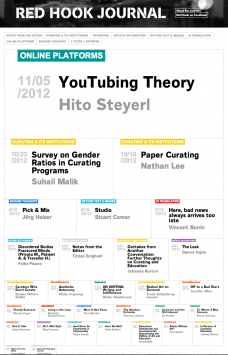
Red Hook Journal
We’re keeping an eye on the Red Hook Journal, the online publishing platform hosted by the Center for Curatorial Studies at Bard College. Aside from noticing a similar design that we’re testing with TPW R&D online (the visible accumulation of connected posts), there’s some great content here.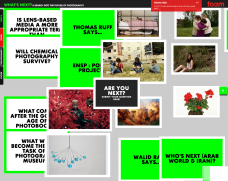
Foam
Foam, the ever evolving and expanding photography organization based in Amsterdam (magazine, museum, blog), celebrated their 10th Anniversary in 2011, marking this achievement with a series of programming under the title: WHAT’S NEXT.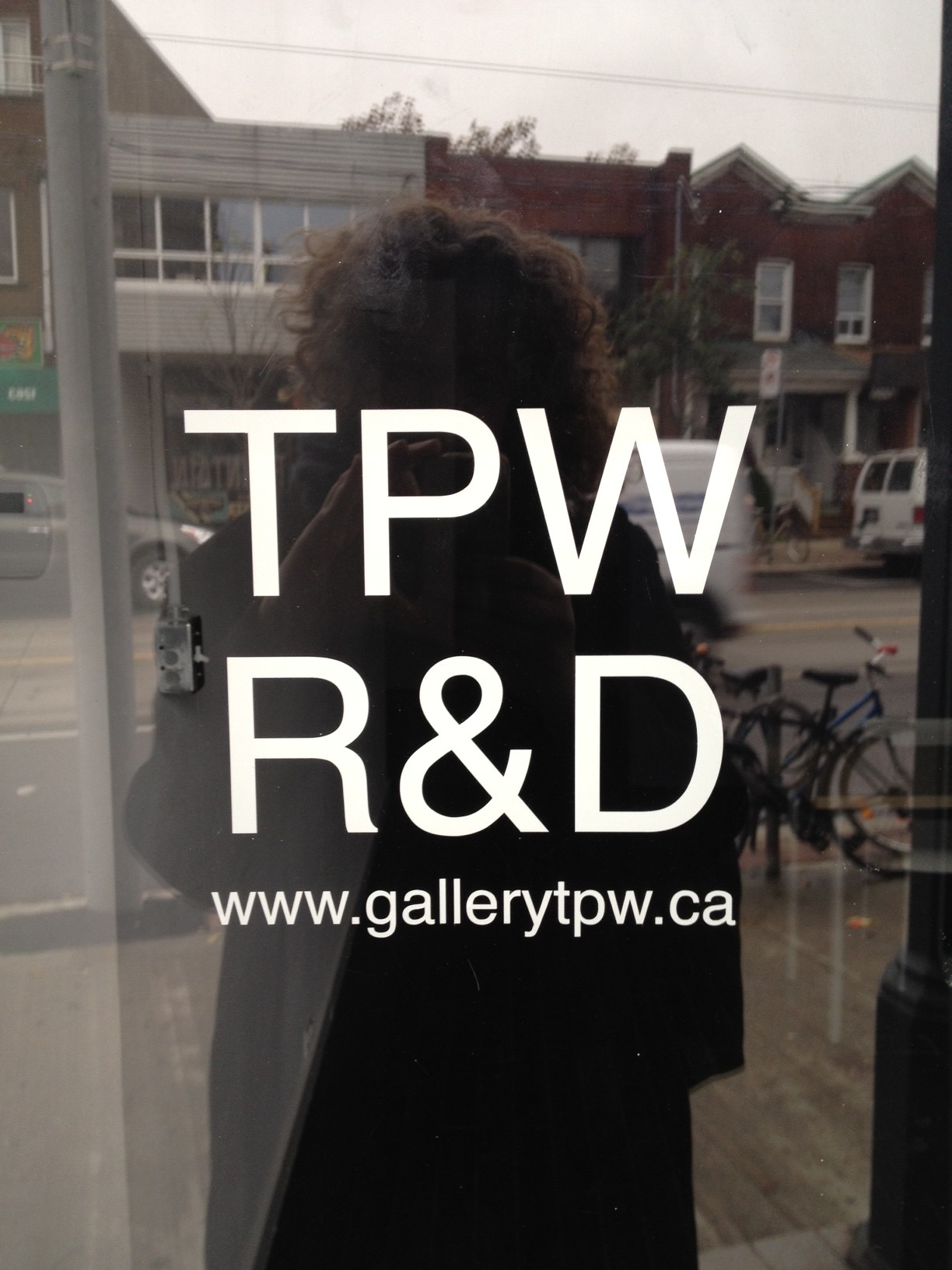
Beta
Temporarily relieved of our lovely white cube, we’ve recently launched our new project space – TPW R&D – and its project website. The emphasis of my work for 2012-2013 is ramping up the demand for a critical relationship between showing and thinking.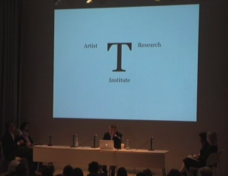
The Now Museum
In March 2011, the doctoral program in art history at the CUNY Graduate Center, Independent Curators International, and the New Museum in New York, co-presented The Now Museum: Contemporary Art, Curating Histories, Alternative Models.
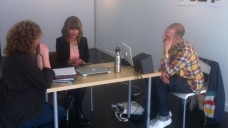
“Residing”
Blog Post
Posted October 29, 2012In this blog post Curator in Residence Gabrielle Moser reflects on public responses to and conversations surrounding her ongoing open curatorial studio.
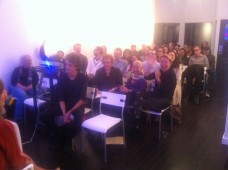
Unshowable Photographs discussion
Here is the audio recording from the Panel Discussion “Unshowable Photographs” at TPW R&D on September 20, 2012.
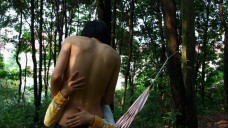
Zhou Tao
Collector(s)
Exhibition
November 8 to 17, 2012
Gallery TPW and the Reel Asian Film Festival are pleased to co-present the Canadian premiere of video work by Chinese artist Zhou Tao. Showcasing Zhou’s conceptual methodologies, his full body of video works will be accessible across multiple venues during Reel Asian.
Aesthetics of Curating
Blog Post
Posted October 24, 2012In this blog post Curator in Residence Gabrielle Moser reflects on the act of publicly performing research, the possible aestheticization of curatorial practice and her ongoing open curatorial studio.
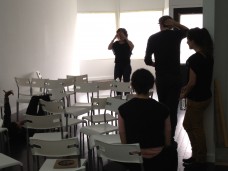
Ame Henderson
Reflections on Public Recordings’ Public Events
In collaboration with TPW R&D, my research intersected with a public space, during two consecutive evenings in early October.

About R&D Online
The R&D website is conceived as a bulletin board of ideas, discussion and resources – an ongoing and accumulating archive of what has been happening at the gallery both publicly and in more intimate research moments.
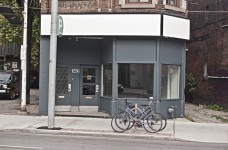
About R&D
Our new project space, branded as TPW R&D, is intended as a transitional and flexible space for shared research and the development of critical discourse. As a temporary research office, our focus will be discursive programming — writing, screenings, discussions, workshops, fluid exhibition strategies — where we can think out loud about our methodologies for looking and showing as much as we continue to directly experience the force of images.
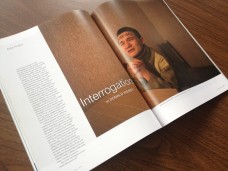
Open curatorial studio: Unshowable Photographs
Blog Post
Posted October 10, 2012In this blog post Curator in Residence Gabrielle Moser announces her open curatorial studio hours, an experiment which includes transforming the questions that the panel discussion about “Unshowable Photographs” raised into an experimental gallery exhibition.
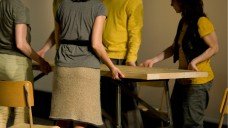
PUBLIC MATTERS: experiments in conversation
Thursday, October 4, 2012, 8:00 pm
PUBLIC MATTERS is a project by Public Recordings, an atelier that explores and shares choreographic experimentation through artistic research, performance creation, publication and education. For the first event in the series, we’ll use “relay interview,” a methodology for shared conversation developed by Jacob Wren (PME-ART).
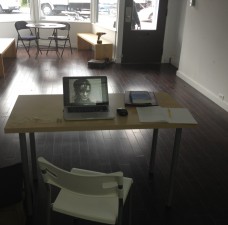
Introduction
Blog Post
Posted September 22, 2012In this blog post Curator in Residence Gabrielle Moser introduces her 2012/13 residency project, “Coming to Encounter.”
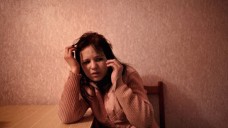
Unshowable Photographs
Panel Discussion
Thursday, September 20, 2012, 7:00 pm
Please join us for the first public presentation in the “Coming to Encounter” series of discursive events, and the launch of the new Gallery TPW R&D space.
